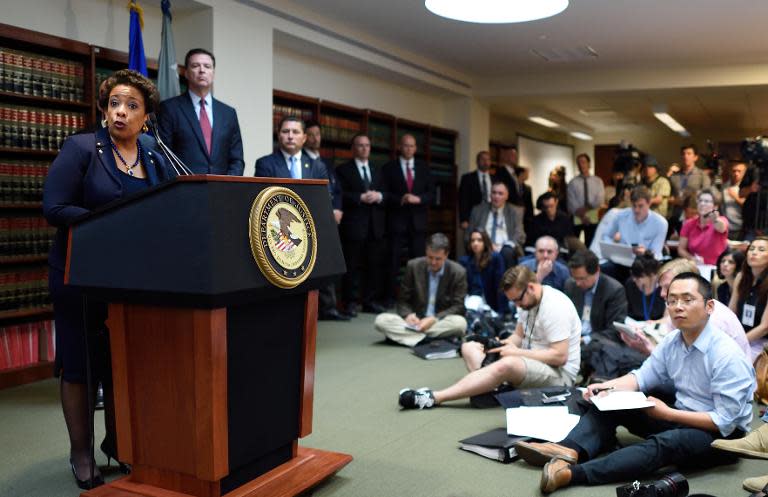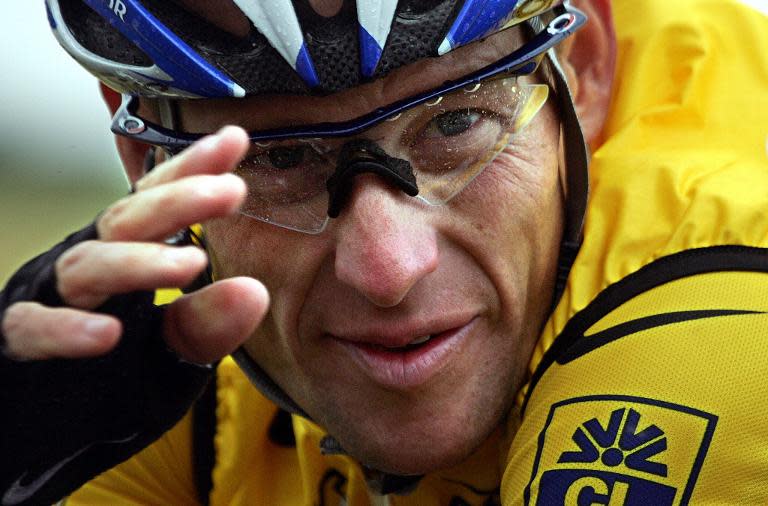FIFA case highlights long arm of US laws
Whether they are targeting Olympic corruption or doping scandals like the Lance Armstrong case, US justice authorities have rarely missed an opportunity to shine a light into the darkest corners of the sports world. The full beam of US justice is now illuminating financial skullduggery in world football after charges were filed against 14 people in New York on Wednesday. The investigation has highlighted the long international reach of US authorities, who have licence to target foreign nationals residing outside the United States if a case is suspected of making even the merest contact with American jurisdiction. "It all comes down to a connection to the United States," Jessica Tillipman, assistant dean and lecturer at the George Washington University Law School, told AFP. "It can be minimal -- we've seen instances of jurisdiction alleged where an email has passed through a US server even though it was was an email between two foreign individuals using two foreign email accounts. "It depends again on the particular statute, but if there is a touch point in the United States, then the US has not hesitated to assert jurisdiction." The 47-count US indictment unveiled by US Attorney General Loretta Lynch on Wednesday outlined racketeering, wire fraud and money laundering conspiracies that span 24 years beginning in 1991. Lynch said the suspects had "abused the US financial system and violated US law, and we intend to hold them accountable." - Hunting 'largest fish' - "What will be interesting to watch is to see how many of those accused will cooperate," Tillipman said. "The goal for the Justice Department will be to see who they can get to cooperate in return for a reduced sentence or even a fine, because the goal will be to go after the largest fish." The probe echoes investigations waged by federal justice officials in several past cases, including the Salt Lake City Olympics corruption scandal, the BALCO doping conspiracy and the Armstrong investigation. Often, the entrance of US federal authorities into the arena has sounded the end for those caught out, even if criminal convictions have not always been forthcoming. The Justice Department launched an investigation in 1999 amid allegations of bribes being paid to International Olympic Committee members by leaders of Salt Lake City's successful bid for the 2002 Winter Games. Bid leaders Thomas Welch and David Johnson were charged with 15 counts on a federal indictment before eventually being acquitted in December 2003. Nevertheless, the Salt Lake scandal was seen as a watershed moment for the Olympic movement, leading to tighter rules on campaigning during bidding designed to limit the potential for corruption. - 'James Bond' gadgets - Federal digging into the activities of the Bay Area Laboratory Co-operative, a San Francisco business that supplied performance enhancing steroids to an array of professional athletes from several sports, was more productive. US sprinter Marion Jones ultimately went to prison after admitting lying to investigators probing the case, the highest profile casualty of a scandal that also embroiled San Francisco Giants baseball star Barry Bonds. The details of investigations into disgraced Tour de France champion Armstrong and corruption in football have at times appeared to come from the pages of a James Bond novel, highlighting the sophisticated methods employed by agents in pursuit of their prey. Cycling whistle blower Floyd Landis was made to wear a wire and carry a miniature portable camera after agreeing to help federal investigator Jeff Novitzky as he began probing the Armstrong case. In the investigation targeting FIFA officials, former executive committee member Chuck Blazer was reportedly equipped with a tiny recording device hidden inside a key ring as FBI agents sought to gather evidence of fraud during meetings at the London 2012 Olympics.





